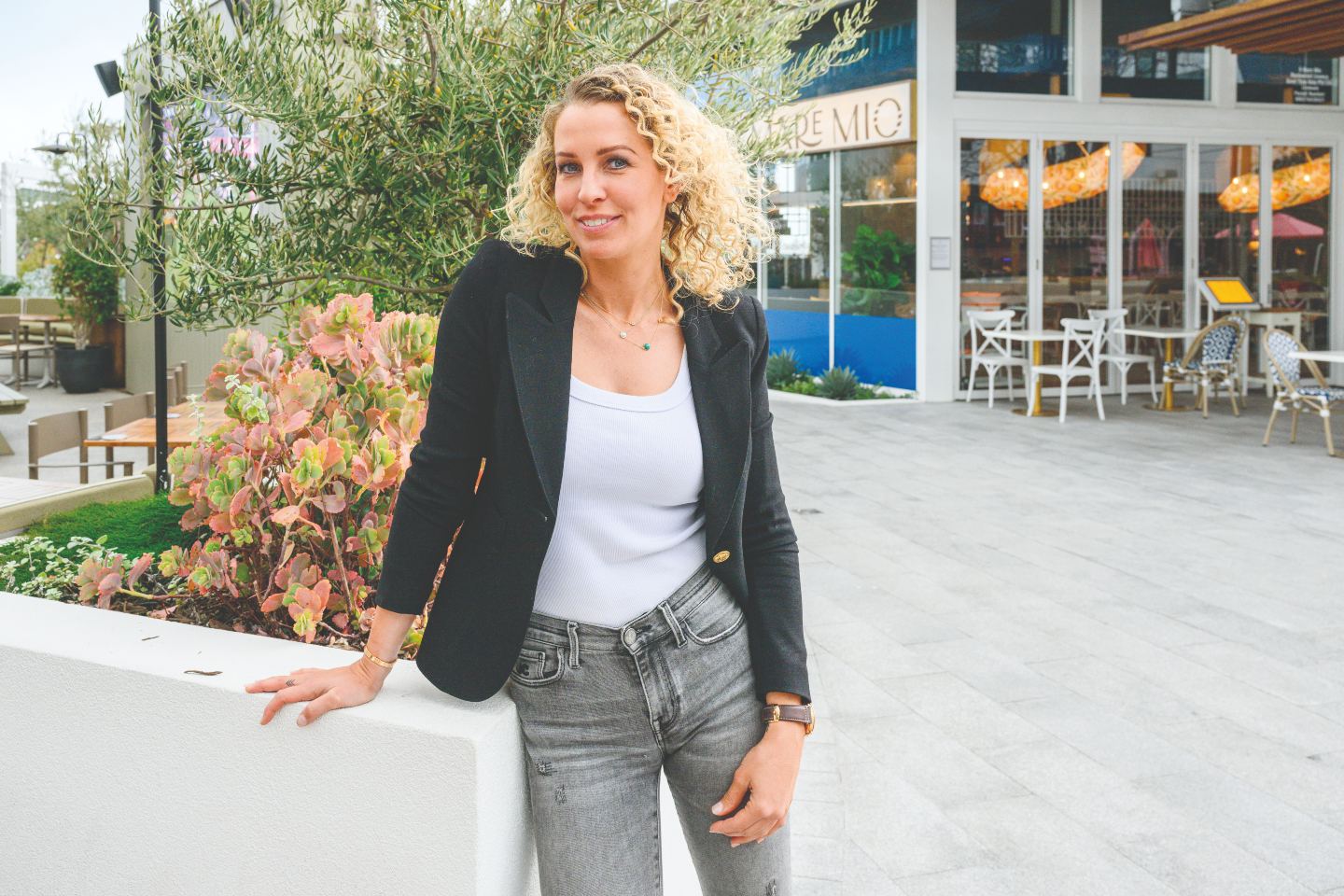Competition is driving growth and a lift in quality in the non-alcoholic drinks space.


AN increasing number of local drinks companies are vying for space in supermarket fridges, particularly in the burgeoning market segment for healthy options.
And while competition among the locals is as healthy as the drinks they produce, these businesses are also up against multinationals in a space where consumer preferences change regularly.
The trend towards healthier, locally made beverages was starting to emerge when Amanda Carroll, founder of The Local Drinks Co, began brewing kombucha.
The Local Drinks Co completed its first commercial bottling of its brand, Rok, in 2016, just in time for kombucha’s initial surge in popularity.
“The kombucha category exploded about 12 months after that,” Ms Carroll told Business News.
“I think the category grew 700 per cent in two years; it was just nuts.”
Consumers’ enthusiasm for the products, and plenty of doorknocking and persuasion from Ms Carroll and her team, resulted in Rok being sold in cafes, IGAs and Woolworths.
However, Ms Carroll said Rok sales had started to wane over the past year, matched by a decline in the kombucha category overall.
“Now, in the last 12 months, it has been all about non-alcoholic drinks,” Ms Carroll said.
“It’s taking up some of that space that kombucha originally had.
“There is only so much shelf space in Australia.”
At the height of kombucha’s popularity, she said, there were about 60 competitor brands.
Ms Carroll – who has familial experience in the drinks industry with her father, Peter Baker, working as a chief executive for Coca-Cola Amatil in Indonesia and the Philippines – knew the company needed to diversify to survive.
It launched a functional range called Rok+ and a low-calorie, all-natural soft drink brand called Waves & Caves.
Ms Carroll said getting Waves & Caves onto supermarket shelves and menus was proving difficult, given the multinational competitors had the money to pay for their brand positioning.
She said the business relied on ‘support local’ messaging to convince retailers.
“I do believe there is a market, we just have to work out how to get retailers and wholesale partners and distributors and the whole supply chain onboard to help local products have that space,” Ms Carroll said.
Another local brand to have survived in the challenging drinks market is Lathlain-based Kommunity Brew.
The business was started by co-workers Jarred Dickie and Mason Bagios in their backyard shed in 2015 to provide people with non-alcoholic drinks to consume at social events that were healthier than soft drinks.
“Making non-alcoholic drinks was about having something to progress our lifestyle a bit,” Mr Bagios told Business News.
“We weren’t people who particularly enjoyed hangovers; having a social drink with your mates would often mean overindulgence, so it was a matter of trying to wake up feeling healthier and feeling good but avoiding the awkwardness of not having a beer in your hand.”
The business is now brewing about 220,000 litres per year and has capacity to make up to 650,000 litres at its new site.
This new figure puts it on par with well-known beer brands Shelter Brewing Co and Boston Brewery.
Its products can be purchased in 500 retail stores nationally, including Coles, Farmer Jacks, IGA and Spudshed.
Earlier this year, the business launched cold brew coffee and tea drinks under the brand Cold Matter, in line with its strategy to release one new drink per year to keep up with competition.
Low alcohol
Soft drinks and kombucha are now firmly competing with the non-alcoholic beer and wine industry.
According to industry statistics, the non-alcoholic sector has grown more than 700 per cent in the past 12 months, filling shelves of both supermarkets and bottle shops.
Old Bridge Cellars owner Jay Beeson said he had seen a flood of non-alcoholic beverage options hit the market in recent years.
“The quality of them has really increased; it’s gone from a few bulk companies like the McGuigan zero alcohol wine or the Clausthaler [beer] as the … only ones we could get our hands on,” Mr Beeson told Business News.
Mr Beeson’s stores now stock about 13 different types of non- or low-alcoholic wine and 10 beers, which make up about 3 per cent of the shop’s total sales.
While producers had managed to produce good quality non-alcoholic beer, he said wine had proved a little more difficult.
“The flavour and the palate for wine, especially, the colour, weight and flavour come from the alcohol,” Mr Beeson said.
“You can only replace that with one thing, which is sugar, to get that sweetness and that thickness.”
The international non-alcoholic beer market is more developed, with local players recently coming on board.
Gage Roads Brew Co, part of ASX-listed beverage company Good Drinks Australia, launched its non-alcoholic beer earlier this year, called Yeah Buoy.
Western Australia-based newcomer Lightning Minds, which only produces non-alcoholic beer, hit the shelves in May.
It recently won silver at the 2022 Sydney Royal Beer and Cider Awards, up against Heaps Normal, one of the original players in the space.
This year was the first time the competition had included a non-alcoholic category.
“It really does show how the drinking habits are changing with people in this country,” Lightning Minds founder Michael Payne told Business News.
Mr Payne started Lightning Minds after he decided to quit drinking.
“As I was stopping drinking, the non-alcoholic sector was really bubbling away,” he said.
“It really worked for me, being able to hang out with friends and family and still have a non-alcoholic drink that tasted decent in my hand.”
Mr Payne said he was at a loose end after wrapping up his previous business, footwear store Gingers for Gentleman, and recruited Little Creatures brewer Matt Crockett to create a non-alcoholic beer.
The brand has grown quickly, appearing on menus at Wines of While, Madalenas Bar and Casa.
The new category of drink is spurring people to start dedicated non-alcoholic drink stores.
Jay Shah, who owns several bottle shops including Porters Liquor Claremont, saw the high demand for non-alcohol beer and wine and started an online store called Shift Lanes Drinks.
“It was a response to seeing such a big demand over Christmas for non-alcoholic drinks and particularly wine and beer,” Mr Shah said.
“Because our actual liquor store is quite small, we just can’t fit everything in there, so we just decided to start a business.”
After a slow start, Mr Shah said demand picked up in the middle of the year, due to charity fundraiser Dry July.
Mr Shah, and his wife, Poonam, plan to open a bricks-and-mortar store early next year once labour shortages ease.
He believed the shift away from alcohol, for some, was here to stay.
“From a Perth perspective and a WA perspective, a lot of WA products are coming online slowly because I think producers are realising it’s not a trend, it’s not a fad,” Mr Shah said.
“It will get saturated at some point, maybe in a few years, but I think people who are serious about it, and once quality improves, I think it will be here to stay.”












